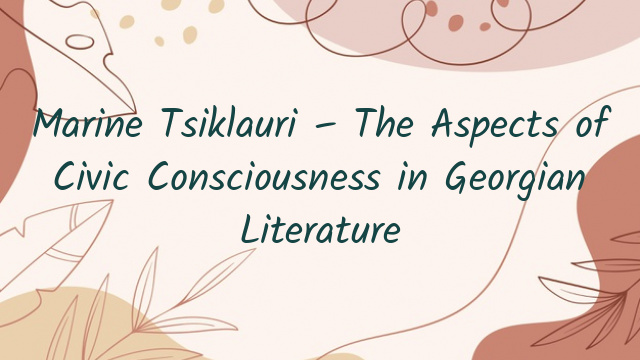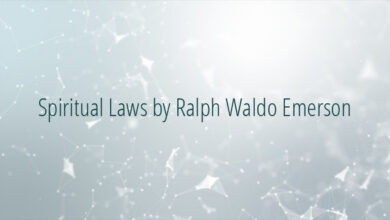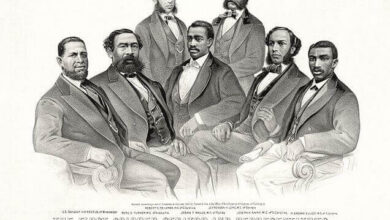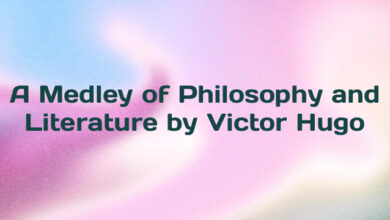
Marine Tsiklauri – The Aspects of Civic Consciousness in Georgian Literature
Ivane Javakhishvili Tbilisi State University, Georgia
Abstract
Only society, equipped with civic consciousness will retain identity and take a stand in the
modern global world. The research aims at revealing distinctive characters of Georgian way of
thinking based on the examples from scientific works and fiction.
Interesting explanation regarding the essence of citizenship is given by a great Georgian
scientist Saint Grigol Peradze in his series of letters “Content of real citizenship” (interpretation
of The Lord’s Prayer – Our Father). He postulates:” Aim of citizen’s life and of citizenship itself
should be God”. Civic Consciousness in the history of Georgian literature originates from
hagiography and immediately comprises double service. Hagiography hero serves for conversion
of physical and spiritual “desert” into “city”.
The poetry of great Georgian poet Vazha-Pshavela possesses all characteristics of highly
developed civic consciousness. Vazha-Pshavela is considered to be “a poet of future” (critic
Tamaz Chkhenkeli), also “a poet of soul” (Grigol Kiknadze), because his creative work is directed
towards spiritual forces of a human and serve for spiritual prosperity.
Keywords
Civic consciousness, citizenship, Grigol Peradze, literature, Vazha—Pshavela
Introduction
In order to define an essence of civic consciousness, it’s necessary to describe a term
citizen (citizenship) in the light of literary tradition. In the majority of world languages
(Georgian, Russian, English, German) base for this word is a large urban area – city,
ქალაქი, город. The Brockhaus and Efron Russian Encyclopedic Dictionary gives
historical meaning of term “citizen”: “In Greece and Rome a “citizen” (πολίτης, cives)
was called not a resident of a city in general, but only a member of a civil unity“
(Brockhaus, Efron,1890-1907).
In the above Encyclopedic Dictionary it is stated that in old Greece, the word
πολιτεία (citizen) implied a whole body of citizen’s rights, from which the followings
were the most important ones: marriage, purchasing of realty, claiming, participation in
general meetings, holding posts. In Rome, two kinds of citizen’s right were
distinguished: 1. Public (jura publica) and private (j.privata). First mainly implies
political rights, while the second one – marriage and ownership of realty. Due to the
above, Roman citizens were divided into full and underprivileged members of the city.
After French revolution a word “citizen” was used not only in the field of political
legislation, but in conversational speech as well; it replaced forms of address “monsieur”
and “madame”.
Meanings of terms “Citizen” and “Citizenship” in Georgian ecclesiastical literature
Great Georgian lexicographer Sulkhan-Saba Orbeliani (1658-1725) defines
“citizen” as one, being in the city (Orbeliani, 1991, p. 509). Georgian Apostolic
Symphony – dictionary defines “citizen” and “citizenship” based on all lexical units of
old Georgian versions: “citizen” – the one, living in the city, гражданин; „I am a Jewish
man, from Tarsus, Cilicia, not a citizen of a strange city, case 21,39“ (Dictionary, 2009,
p. 252). In the same dictionary we see word combinations – “mentally good citizen” and
“citizen of a heaven”. In old Georgian texts, being a “mentally good citizen” is a way
to save a soul and find a heaven; “because our real citizenship is in heaven“(dict).
“Citizen of a heaven” – this form of address is used by Georgian figure of 19th
century Mikhail Sabinin, who is an author of “The Paradise of Georgia”, a voluminous
lithographed edition of biographies of important Georgian Orthodox Christian saints. In
the preface he thanks for assistance mother superior Nina from Samtavro monastery and
called her a “Citizen of a heaven”: „some materials were given to me by The bride of
Christ and a citizen of heaven, mother superior Nina from Samtavro
monastery“(Sabinin, 2015, p. 7).
Following formulation is given in Georgian Easter chant: “Christ is risen and life is
citizening“; thus, a citizenship is more than life, it’s associated with spiritual victory,
it’s superiority to everything terrestrial.
In Georgian Hagiographic texts, citizenship comprises lives of Saints. Great
Georgian hagiographer of 10th century Giorgi Merchule in his work “Life of Grigol
Khandzteli” used the following epithet, when talking about saint Grigol –“the one who
converts desert into a city” (უდაბნოთა ქალაქმყოფელი). Saint Grigol of Khandzta
constructed monasteries in the South of Georgia (modern Turkey), on the land ravaged
by Arabian conquerors in the 8-th century. His epithet do not describe physical
construction only but initially implies filling of spiritual emptiness with bliss,
conversion of spiritual “desert” into a “city”.
According to the above, in Christian tradition and old-Georgian literature,
citizenship has a meaning of active, dynamic process –striving towards spiritual
developmentv and prosperity.
Saint Grigol Peradze’s viws about citizenship
Interesting explanation is given by a great Georgian scientist of 20th century, doctor
of theology Saint Grigol Peradze in his series of letters “Content of real citizenship”
(interpretation of The Lord’s prayer – Our Father) – these are sermons, pronounced in
Saint Nino’s Church in Paris. In 1988-1989 these letters were published in journal of
Georgian Patriarchy “Jvari Vazisa”. Grigol Peradze thoroughly reasons about
spirituality of citizenship, the essence of word, features of the real citizen. Following
thesis seems to be the main postulate of Grigol Peradze: “Aim of citizen’s life and of
citizenship itself should be God” (Peradze, 1988, p. 41).
The author states, that main feature of a citizen is “consciousness”, “conscious
membership” of homeland: “a citizen means each conscious member of homeland; it’s
not a one, owning property, but the one who feels great property: life, its essence and
liability”(Peradze, 1989, p. 80). Thus, civic consciousness is not determined by
unconscious liabilities, implemented without reasoning, but the mental and spiritual
perception of personal liabilities and significance of life.
Grigol Peradze emphasizes meaning of word “citizen” in the context of someone,
fighting against evil: „this is a word massive and rich in content…citizenship implies
spiritual life of saint: his struggle against himself, his circle and darkness, i.e. struggle
for implementation of aimed ideas and principles” (Peradze, 1989, p. 80).
Saint Grigol Peradze enumerates in detail features of citizen and makes very
interesting conclusion; he states that civic activity is not required only from saints, but
from the whole society in general: „citizenship demands from each citizen
consciousness, honesty, ability of thinking, wisdom, courage; citizenship requires to see
things in cheerful light, prudence, steadiness, modesty, which is not characterized for
slave but for educated person; citizenship is ability to see a human in people and to
appreciate it” (Peradze, 1989, pp. 80-81). Grigol Peradze considers Pater Noster to be
a source of “citizenship” and emphesizes following part of the prayer – „and forgive us
our debts, as we also have forgiven our debtors“ – just these words reveal an essence of
real citizenship. Forgiving of neighbour is very difficult for person – it needs
suppression of revenge and passions, sacrificing.
Artistic representation of civic consciousness in Vazha-Pshavela’s poems
“What has made me a man?” and “My Entreaty”
“If I am asked what will I wish for my country, I would say: certainly
consciousness… good and the evil of the life is mainly connected with this
consciousness-ignorance. Everything written by the mankind for its benefit was written
when recovering consciousness, but unfortunately not every nation was conscious in
this period: one nation excels the other in consciousness“(Vazha-Pshavela,1979, p. 196)
– these words belongs to great Georgian poet of 19th century Vazha-Pshavela (1861-
1915). Thus, “consciousness” or “recover consciousness” of each person is the main
base of nation’s development.
Vazha-Pshavela is a pseudonym of Luka Razikashvili and literary means a “man
from Pshavi”. Professor of London University, translator of Vazha’s works in English
– Donald Rayfield notes: „As the Georgian futurists admitted, when repudiating all the
past, ‘Vazha stands outside time and space’. He is qualitatively of a greater magnitude
that any other Georgian writer” (Rayfield, 2013, p. 187). Among various themes found
in Vazha-Pshavela’s creative work, a civic-social one is certainly the most important. It
is artistic realization of writer’s inner, spiritual requirements. Poems “What has made
me a Man?” and “My entreaty” give vivid reflection of this passion.
Motif of sacrifice has a basic place in Vazha’s works. Poem “What has made me a
Man?” reveals two poetic phenomena – humanity and being a rain. A lyrical character
wishes to be a rain:
“What has made me a man
Why haven’t come I as a rain?” (Vazha-Pshavela, 1986, p. 87).
The rain is a “child of heaven”, “beads of clouds”, “worshipper of the sun”,
“disappointer of death”. The sweat of rain makes dying surroundings to revive and this
in its part make a poet happy. Overwhelming love strives for blending with nature; it
desires to make nature alive and is ready for sacrificing. This motif in Georgian
literature is presented from of 12th century poem, masterpiece named “Vepkhistkaosani”
(“The Knight in the Panther’s Skin”). Avtandil’s (character of the above poem) singing
merges with nature; his inner, spiritual energy revives inanimate objects, makes animals
listen carefully, even stones listen to his song. The same motif can be found in works of
romantic poet Nikoloz Baratashvili, who wishes to be the sun at sunrise to revive dried
meadow, to make birds and flowers happy. In newest Georgian literature, this theme is
most impressionably revealed in works of Galaktion Tabidze and Terenti Graneli. In
Galaktion’s works, there is no border between the world and poet’s heart (“I and the
Night”),
Terenti Graneli is courageous to state: “I wish I was everywhere like God”
(miniature “Blood drops from heart”) – it is not a blasphemy, but overwhelming desire
to spread in world and merge with space.
Thus, “being a rain” in Vazha’s poem is not neglect of humanity but its acceptance
and recognition, preservation of similarity with God, what can be achieved only through
sacrificing and care of nears. In this poem, poet develops an idea of Christian love, of
correct sacrifice. During defining an essence of citizenship, Saint Grigol Peradze was
writing: “citizenship means sacrificing, self-burning for giving a light to other”
(Peradze, 1989, p. 80). Vazha-Pshavela’s lyrical character is a bearer of civic
consciousness.
Ilia II, Catholicos-Patriarch of modern Georgia, gives highly appreciates to Vazha-
Pshavela’s poem “My Entreaty”: “It’s a result of highest Christian thinking, a praise of
modesty, love, heroism, loyalty; its author is a real friend of God and not only a gifted
person”( Ilia II, 2006, p. 1).
In this poem, Vazha desires to be in the place of grass and not a scythe, he even
agrees to be a lamb, but never a wolf; anxiety makes him happy. Leading theme of this
poem is Christian perception of the happiness. Being a “grass” or a “lamb” is considered
to be a happiness by the author, i.e. citizenship, implemented with modesty. Taking care
of other and protection of oppressed makes him happy. It’s a visible side of internal
suffering, which is difficult to stand, but at the same time is desirable for the author:
„Only suffering makes me happy”. Doing a good is a huge internal desire of the poet
(even it is not appreciated by others). Indifference and lack of cordiality is like a death
for him.
Being a “grass” and a “lamb” is not considered as helplessness by the author; he
never lets himself be eaten by a wolf and never lays his head in front of a scythe. Wolf
and scythe are symbols of indifference, cruelty, lack of cordiality and tenderness. Vazha
damns such life and is not going to arrange a truce with it. Uncompromising struggle
with evil is Vazha’s choice and the main goal of his characters.
Conclusion
According to the present-day interpretation given in dictionaries, citizenship means
legal belonging to certain State: „Status of citizenship gives certain rights and liabilities
(defined under the current law) to person, living in State“(Dictionary, 2011, p. 129).
Thus, citizenship implies rights and liabilities, defined under legislation.
Hence, a term “citizenship”, from the standpoint of historical and literal traditions,
also present social-political conditions, comprises, on the one hand, spiritual features (a
way of spiritual perfection) and ,on the other hand, rights and liabilities defined under
the law. These two sides fill each other. A citizen is responsible to God, State and
society. That’s why in Georgian hagiography saint Grigol from Khandzta is called “A
man of heaven and an angel of the earth”, i.e. mediator between earth and heaven,
executor of both liabilities. In new Georgian writings (Akaki Tsereteli’s poem “Tornike
Eristavi”, Alexander Kazbegi’s story “Khevisberi Gocha” etc) this harmony is given in
following formulation -“God’s word –nation’s word”.
Acknowledgment
The research publishes the partial results of the doctoral dissertation “The issues of
formation and development of civic consciousness in Vazha-Pshavela’s creative works
– methods and activities of teaching”. It is a winner project (DO 335/2-110/14) in call
for Ph.D programme grants (2014) announced by “Shota Rustaveli National Science
Foundation” (Georgia) and is supported by the foundation. Research directions: Literary
studies, Education studies-methodology. It is held at Ivane Javakhishvili Tbilisi State
University, faculty of Psychology and Education sciences.
References
Brockhaus, F. A., & Efron, A. (1890-1907). Encyclopedic dictionary. Saint-Peterburg
Civic Dictionary. (2011). Tbilisi: Sezani.
Georgian Apostolic Symphony-Dictionary (2009).Tbilisi: Tbilisi State University Press.
Orbeliani, S. S. (1991). Explanatory Dictionary. Vol. I. Tbilisi: Merani.
Peradze, G. (1988). “Content of Real Citizenship.” Jvari Vazisa: 80- 84.
Rayfield, D. (2013). The Literature of Georgia. New York: Routledge.
Sabinin, M. (2015). The paradise of Georgia. Tbilisi, Georgia: Diadema. first published
in 1882.
Vazha-Pshavela. (1979). Newly Revealed Works. Tbilisi.
Vazha-Pshavela. (1986). Works. Tbilisi: Sabchota Saqartvelo
Contact
Marine Tsiklauri
Tbilisi, Digomi massif, Q. IV, building 13, ap.25.
tsiklaurimari(at)gmail.com




